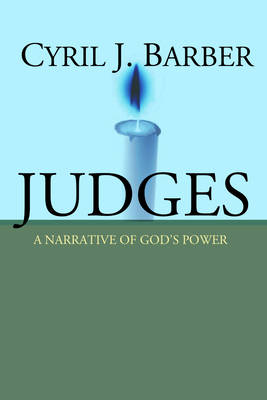
- Afhalen na 1 uur in een winkel met voorraad
- Gratis thuislevering in België vanaf € 30
- Ruim aanbod met 7 miljoen producten
- Afhalen na 1 uur in een winkel met voorraad
- Gratis thuislevering in België vanaf € 30
- Ruim aanbod met 7 miljoen producten
Zoeken
Omschrijving
The book of Judges deals with a people who lost their freedom--not all at once, but gradually. The Israelites were content to let the neighboring inhabitants of Canaan rule over them. Judges clearly describes the reasons for this spiritual, moral, and national decline. It began with compromise. The people's commitment to God's revealed will steadily decreased until it was no longer sufficient for the crises that arose. It was at this time that God placed tremendous responsibility in the hands of a chosen few. Judges, more than any other book of the Bible, illustrates the way the power of God is available to ordinary people to accomplish His purposes. These men and women learned through their experiences that to ""those who have no might, he increases power"" (Isaiah 40:29). This should inspire us with confidence, particularly as we read this book in light of the apostle Paul's words: ""Not that we are competent in ourselves to reckon anything as from ourselves, but our competency is of God . . . in order that the excellency of the power may be of God and not of us"" (2 Corinthians 3:5; 4:7).
Specificaties
Betrokkenen
- Auteur(s):
- Uitgeverij:
Inhoud
- Aantal bladzijden:
- 294
- Taal:
- Engels
Eigenschappen
- Productcode (EAN):
- 9781592443864
- Verschijningsdatum:
- 7/10/2003
- Uitvoering:
- Paperback
- Formaat:
- Trade paperback (VS)
- Afmetingen:
- 155 mm x 229 mm
- Gewicht:
- 417 g

Alleen bij Standaard Boekhandel
+ 69 punten op je klantenkaart van Standaard Boekhandel
Beoordelingen
We publiceren alleen reviews die voldoen aan de voorwaarden voor reviews. Bekijk onze voorwaarden voor reviews.







